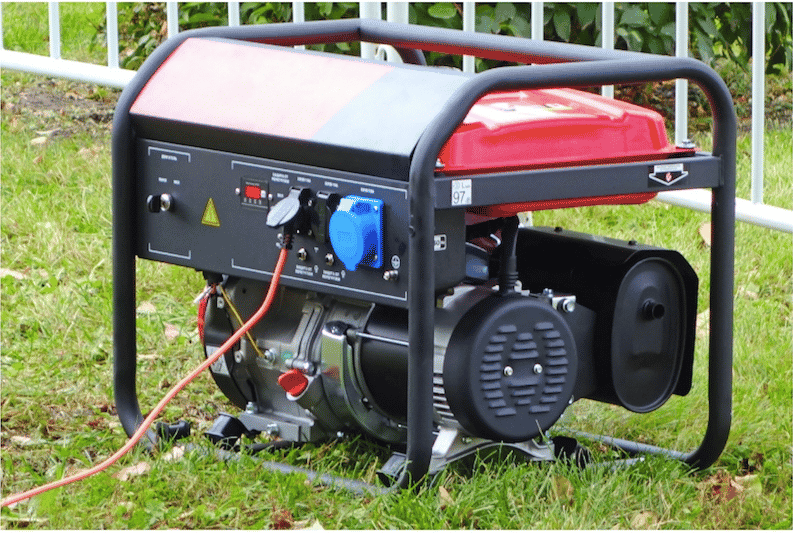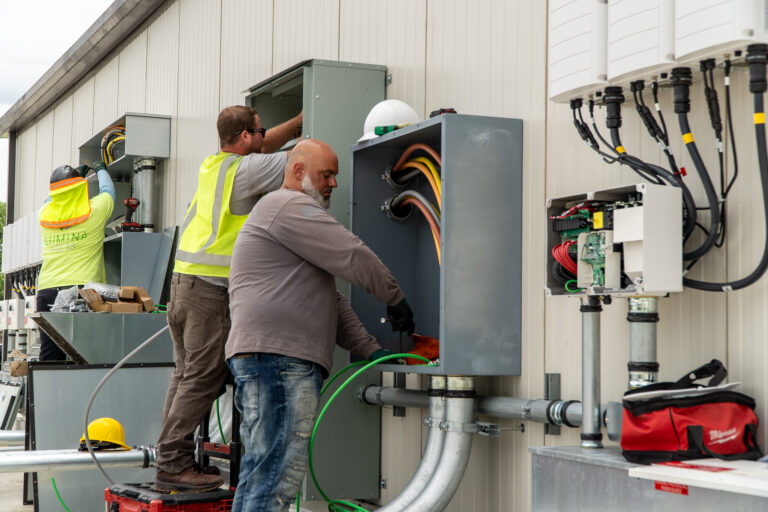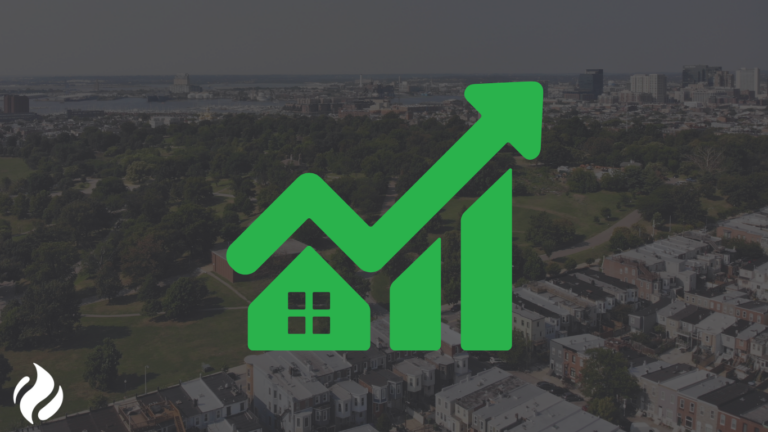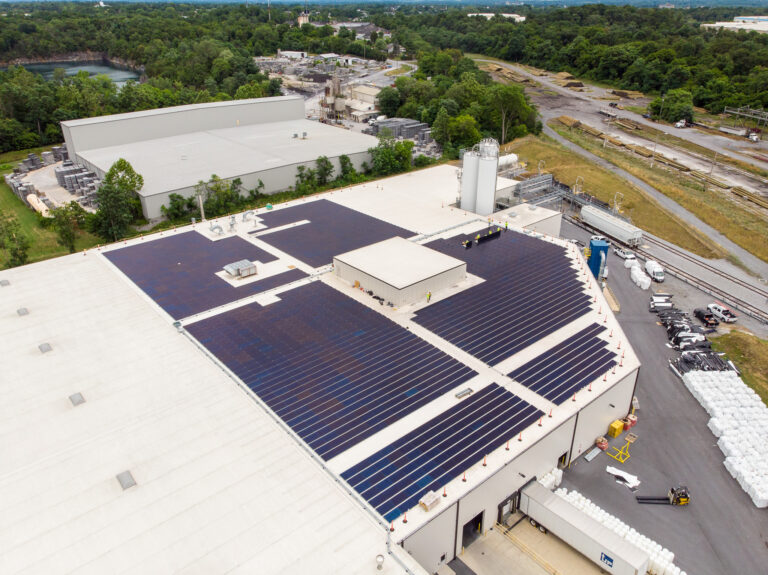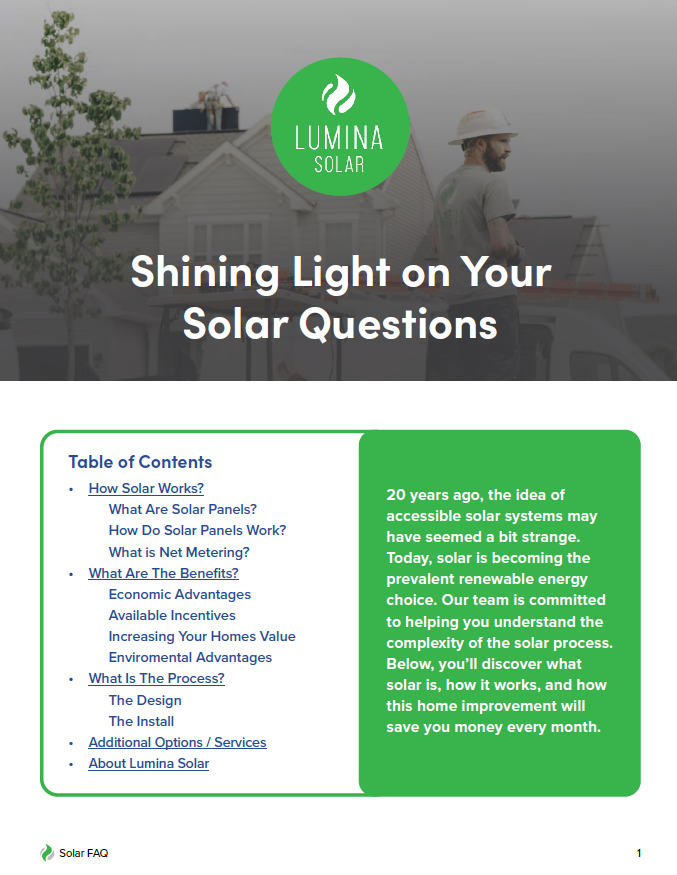When it comes to having rooftop solar panels, it’s not uncommon for people to assume that they’ll have electricity to power their home during a blackout. And at first blush, this makes sense. Solar panels make electricity. You have solar panels. Ergo, you should have electricity. Unfortunately, that isn’t quite the way it works. But that doesn’t mean that it isn’t possible!
There are, of course, a variety of ways to maintain your lights-on status when the rest of the neighborhood is in the dark:
- A generator
- A solar power inverter
- Solar power plus battery backup system
But first…
Why Won’t I Have Electricity During a Blackout?
In order to understand why your solar panels won’t automatically provide you with power during a blackout, you need to fully understand how they work. Even with enough solar panels installed on your roof to generate almost all of your electricity needs, there are two factors to consider:
- Solar panels only generate electricity during the day… when the sun is out (but you knew that).
- Your solar panel system is always going to be tied to the grid because that’s how you receive energy to your home when there isn’t enough solar energy being produced.
So, now you’re probably wondering “why do I need to be tied to the grid?” Well, as we mentioned, your panels are only producing electricity during daylight hours. At night, you’re drawing power from the grid. During the day, your home uses the energy it needs from the panels and sends the rest back to the grid (although sometimes during the day you still need to draw energy from the grid). Any surplus energy is then sold by the electric company to your neighbors, and you receive a credit toward your electric bill. That credit then offsets the amount of energy you ultimately end up using/buying at night. (This is how you end up saving money on your electric bill.)
Okay, so what if the power goes out during the day – shouldn’t the panel just keep on generating enough energy to power your home? Well, theoretically yes but… they don’t.
First, your panels may not generate enough solar energy to power your home 100%. If they don’t, and you were trying to rely completely on that energy, it wouldn’t be pretty. You’d have lights flickering and appliances turning on and off constantly. It would be inconvenient and annoying.
Second, since your home has to be connected to the grid, there are safety protocols that are required to be built in. As you know, during a power outage, the utility company sends crews out to work on power lines. While there’s work being done, the sections of the grid being worked on are shut off to keep the workers safe from errant electrical currents traveling through the wires. To prevent homes that are using solar from continuing to try to send electricity to and fro on the grid, your panels shut down too.
What Are My Options for Solar Power When the Power Is Out?
With all of that said, however, there are ways to keep your power on during an outage.
Generator
The first is a traditional generator. There are generators of various sizes that can either power a few appliances or your entire home. It’s up to you to determine what type of investment you’d like to make (and that investment includes the equipment, fuel, and parts/labor from your local electrician/generator installation company).
Inverter
The second option is a solar inverter. This is an additional piece of hardware that some people opt to have installed with their systems. An inverter needs to be manually switched on and will allow your home to continue to use the energy generated by your panels while remaining completely shut off from the grid. However, these inverters aren’t going to generate a huge amount of electricity – in fact, they may not even generate enough to run an air conditioner. But you’ll be able to have some lights, an outlet to charge your phone, and perhaps enough wattage to keep your refrigerator going. It’s definitely better than nothing.
Solar Plus Battery
The third option is to invest in solar plus battery storage. Lumina is the first Tesla Powerwall Certified Installer in Maryland, and we’re incredibly excited about this method of keeping your power on! Essentially, with a solar battery, you’re creating your own power backup. Throughout the day as your panels generate energy to be used by your home, the excess is stored in your very own battery (and any surplus above and beyond is still sent back to the grid). In the event of an outage, you simply turn on your battery and voila! – you’re able to keep your home powered. Some batteries require a manual process to switch over and are unable to recharge themselves during use, but the Tesla Powerwall is a step above. With this system, your home will automatically disconnect from the grid and switch over to battery power within a second – you most likely won’t even realize the power is out! From there, your Powerwall will continue to charge itself from the energy created by your solar panels, allowing you to power your entire home for days.
If you’re ready to make the switch, contact the team at Lumina today.

